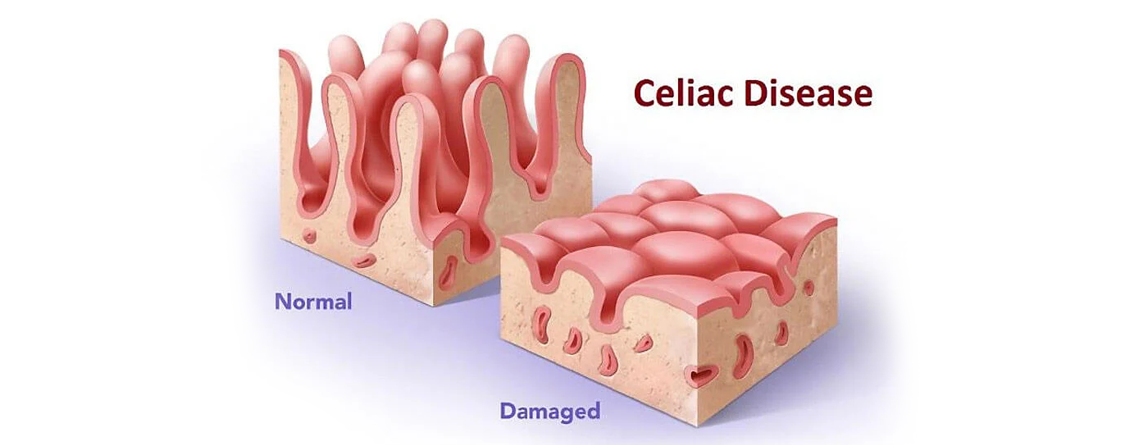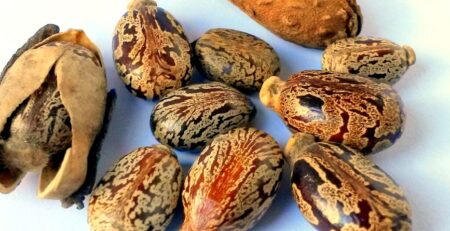Are You Gluten-Intolerant or Celiac? Find Out
How many of you have heard about celiac disease? Did you know it affects 1 percent of people around the world? Before you think gluten intolerance and celiac disease are interchangeable, we are going to bust this myth right here. There is a difference. While celiac disease is an autoimmune disorder, gluten intolerance is a sensitivity. And upcoming research studies have shown that celiac disease is likely to affect more women and children than men.
It is hereditary. This means that if you have a parent, child, or sibling with celiac disease, you have a (1 out of 10) risk of developing it at any age after you start consuming gluten. When left untreated, it can create numerous complications in the human body right from osteoporosis, anemia, malnutrition, and neurological and fertility issues, in the long run.
Many people are living with these symptoms and trying to suppress them with medications. They continue to live with the uncertainty of ever fixing it because they are unaware if it is just gluten intolerance or a case of celiac.
What is celiac disease?
Celiac means your body just cannot digest and break down gluten at all. It means that you can never have gluten. Whereas gluten intolerance means you may be sensitive to it because you have developed poor gut health over the years. But there is a chance you could work on your digestive system, you may just be able to go back to eating gluten one day.
So many people out there are suffering and undergoing endoscopies and colonoscopies only to find out they were celiac. What if you can correlate your symptoms before you do all these invasive procedures (which are not bad if it’s needed)? You could avoid them by doing a simple blood test. The next step would be to cut out gluten and all of your symptoms start to disappear.
Where is gluten found?

Gluten is found in wheat, barley, rye, and food products made of these. So, examples of food high in gluten include:
- Bread and related products (naan, pita, rolls, chapati/wheat rotis, bagel, tortillas)
- Baked goods (cakes, brownies, muffins, cookies, biscuits, croissants, donuts, muffins, pies)
- Pasta
- Noodles
- Condiments (dips, salad dressings)
- Sauces
- Soup mixes and bouillon
- Gravy mixes
- Cereal
Symptoms of celiac disease
The biggest symptom of celiac is your body’s inability to break down and digest the protein molecule gluten. Every time you consume it, your body starts creating inflammation, makes your immune system behave erratically, and attacks your tissues which is why it is called an autoimmune condition.
Now, all of the symptoms that we speak about today can also point to different conditions but it is important to look at your unique body and correlate your symptoms to your current lifestyle.
Bloating
If you have constant bloating – after a meal, before it, in between your day or you wake up feeling bloated. Now, remember, bloating can also happen if you overeat or undereat, keep long gaps between your meals, or eat late-night dinner. But if you are eating at the right time and way and still experiencing these symptoms, check if the root cause is celiac.
Bowel issues
If you are not sick, yet experience diarrhea or constant loose motions a couple of times a day. Loose motions can also be a factor in irritated bowel syndrome or food poisoning. But those with celiac tend to oscillate between constipation and diarrhea. Sometimes, you may also find blood in your stools. The same can happen even if you are severely constipated and push too hard.
Gas and flatulence
Do you experience constant gas and flatulence? When you pass out this trapped gas, you start to feel better. Having to unbutton your pants to feel better and pass gas can be a sign of poor digestion or even celiac.
Brain fog and fatigue
You constantly feel tired, fatigued, and lethargic. You have a loss of mental clarity, even though you slept well at night and are eating and exercising well. You have dull aches and pains all over your body even though your vitamin D3 levels are fine. Some may think it is stress, but it could be gluten-related, too.
Iron deficiency
If you constantly have an iron deficiency where your doctor gives you an iron supplement, your levels go up but keep crashing again, it could be a symptom of celiac disease. Celiac destroys your gut and creates inflammation to block iron absorption. Low iron levels can lead to hair fall, skin issues, low energy, fatigue, lung problems, and more. Inflammation in the gut also blocks the absorption of other key nutrients and minerals. So, your B12 levels will fall, no matter how many supplements you take. This could be a symptom of celiac.
Micro deficiencies
A lot of absorption of vitamins and minerals happens from the gut. So if you have poor gut health, you can also be vulnerable to micro deficiencies. This may also explain fatigue, hair fall, acne, pigmentation, and so on. It is all interrelated. One micro deficiency can create a problem. A multivitamin may not solve your problem, because if you have a malabsorption problem, you first have to fix the gut. This will enable you to absorb the nutrition coming in from your food or supplement.
Unexplained weight loss or inability to lose weight
Constant weight loss could mean you are celiac. Does this mean if you are on the heavier side, you cannot have celiac? No. The inability to lose weight or stubborn fat weight coupled with indigestion issues could also point toward celiac disease.
Depression-like symptoms
Medical science suggests that many patients with depression can also be celiac. When you are celiac, the inflammation in your gut also affects your brain. We have spoken about the gut and brain connection in the past. Your gut health affects your emotions. We have observed this among many patients who come to us with depression-like symptoms.
Once we fix their gut health or cut off gluten if they are celiac, their symptoms become better. This is not to be confused with clinical depression, which is completely different and requires the intervention of mental health experts. But there is scientific evidence that connects depression with poor gut health among those with autoimmune conditions.
Leaky gut
We have done many videos on the connection between autoimmune conditions and a leaky gut (watch this). If you already have another autoimmune condition like arthritis, lupus, Hashimoto’s, eczema, and psoriasis among others, are celiac and continue to eat gluten, it can worsen and cause flare-ups. Many of our patients who come to us with autoimmune conditions, on doing a simple blood test realize that they are celiac. Once we cut out gluten from the diet, the symptoms start subsiding.
ALSO READ: How to Build Good Gut Health?
Food allergies
If you develop sudden allergies or sensitivity to the foods that you grew up eating, it is because your gut is inflamed and weak. Get a test done to check if it is just poor gut health or if you are celiac.
Weak bones
Being celiac and not knowing it, can lead to osteoporosis and damage your bones in the long run. Today people in their 30s and 40s are struggling with osteoporosis. We need to understand that it is not just your calcium and vitamin D3 levels that matter. If you have chronic acidity, gut issues, or are celiac, it can lead to these bone health issues.
Mouth sores
Yes, constant mouth sores can point towards gut issues or even being celiac.
Infertility
So many people are going through infertility. Many of those who come to us, after getting tested, realize they have celiac. Once you cut them off gluten completely and couple it with lifestyle changes, guess what? Their chances to conceive improve.
Gluten neuropathy
Some people may experience tingling sensations in their fingertips and toes even if they are not going through chemotherapy or radiation. This is caused by gluten neuropathy. Once you go off gluten, your symptoms disappear.
Celiac in children
Gluten intolerance and celiac are affecting many children. Always be mindful. Is your child constantly complaining about abdominal pain, gas, colic, or blood in the stools? Are they facing stunted growth? Do they have weak bones? Do they have any autoimmune conditions like eczema or psoriasis? Do they struggle with mouth sores, constant irritability, and anger issues? Check their gut health to find out if it is gluten intolerance or it is celiac.

Steps to find out if you are celiac
- The first step is to – maintain food logs and ask yourself – does eating gluten make you feel a particular way? Does your stomach feel queasy? Observe, correlate and reflect.
- Next, get your tests done to establish what is happening in your body. What is this simple blood test?
- tTG – IgA
- tTG – IgG
- Calprotectin stool test
What if you test positive?
Cut out the trigger, in this case, gluten. Just by removing this ingredient from your nutrition plan, a lot of your symptoms can start to subside.
Does this mean you have to give up gluten for the rest of your life?
In most cases, when gluten is eliminated from the diet and your gut is allowed to heal, your sensitivity to it decreases. But in some cases, it might be a change for a lifetime, depending on the state of your gut health.
What can you eat if not gluten?
- Rice
- Millets
- Gluten-free oats
- Raw banana flour
- Jackfruit flour, and more.
Always remember to read labels carefully because sometimes gluten can sneak into several so-called “gluten-free” products too.
Want to try gluten-free recipes? Check them out at our recipe corner here.
Shop for ethically sourced gluten-free products here.
ALSO WATCH:
ALSO READ: Tips For Starting A Gluten-Free And Dairy-Free Diet
|
From a pimple to cancer, our You Care Wellness Program helps you find a way Talk to our integrative team of experts today 18001020253 |










Leave a Reply